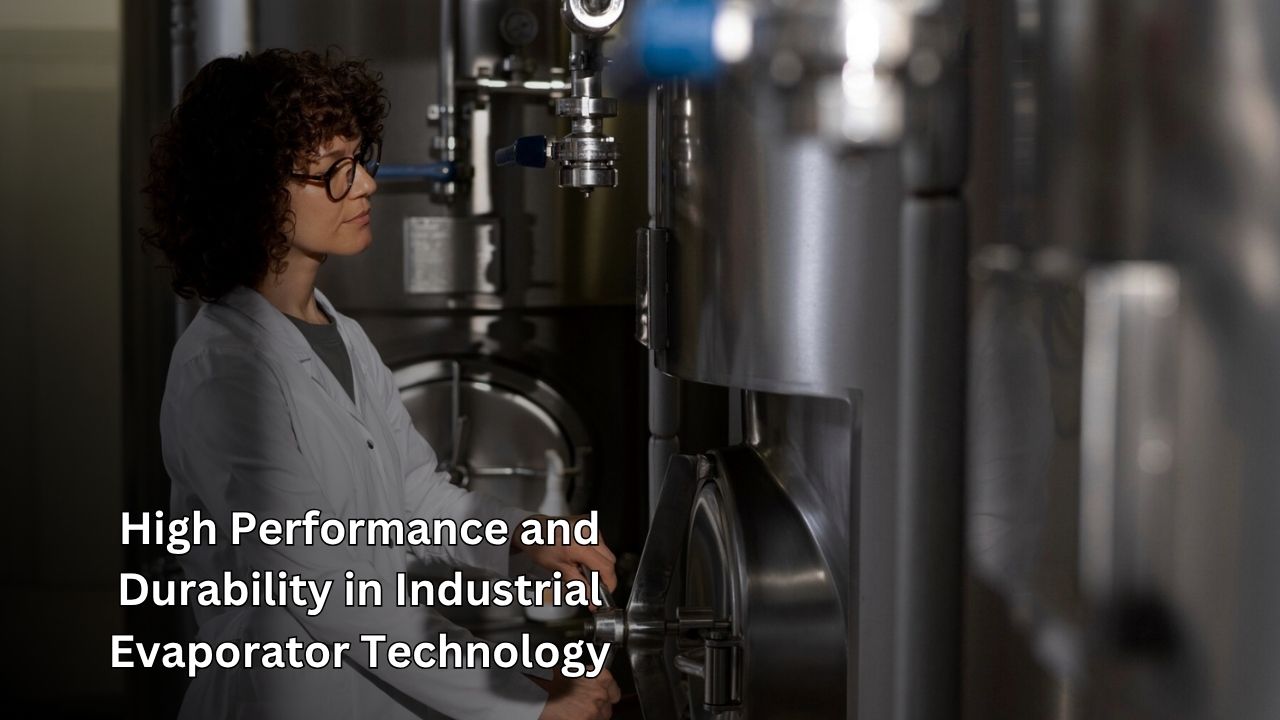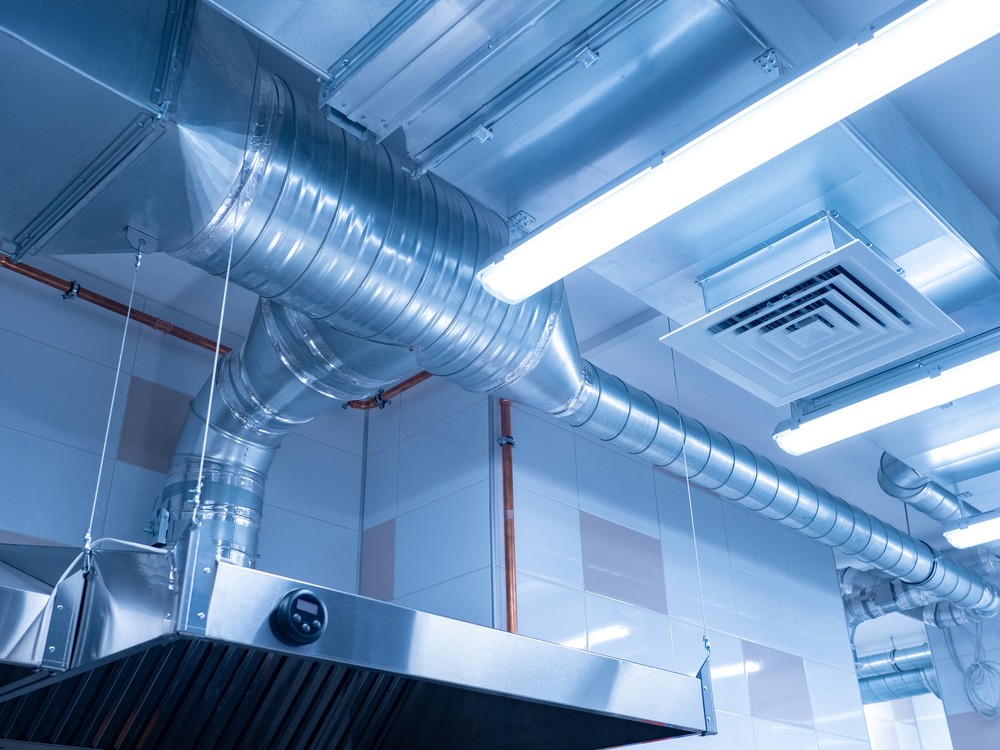Industrial Evaporator
Industrial Evaporator: Efficient Cooling and Concentration Solutions for Industry
An industrial evaporator is a cornerstone of large-scale cooling systems and liquid concentration processes. Playing a pivotal role in industries such as chemical, food, pharmaceutical, and energy, these devices deliver energy efficiency, environmental sustainability, and high performance. An industrial evaporator facilitates heat transfer by evaporating liquids, enabling process optimization. In this article, we will delve into the working principles, types, applications, design features, maintenance requirements, and industry trends of industrial evaporators. Our aim is to provide comprehensive insights into industrial cooling systems, helping your business identify tailored solutions for your needs.
What Is an Industrial Evaporator and How Does It Work?
An industrial evaporator is a heat exchanger that evaporates a liquid substance, absorbing heat from the environment or concentrating a liquid for industrial processes. This operation is integral to the refrigeration cycle or liquid concentration processes. The evaporator operates in a low-pressure environment, allowing a liquid refrigerant (or process fluid) to absorb heat and transition into a gaseous state. During this process, heat is transferred from the air, liquid, or gas in contact with the evaporator’s surface. For instance, in a food processing plant, an industrial evaporator concentrates liquids like fruit juice or milk, while in a chemical facility, it provides large-scale cooling. The design and material selection of the evaporator directly impact system efficiency and durability, making high-quality components essential for industrial applications.

Types of Industrial Evaporators and Technical Specifications
Industrial evaporators vary to meet the diverse needs of different sectors, with each type offering optimized technical specifications. Here are the most common industrial evaporator types and their key features:
- Plate Evaporators: Known for their compact design and high heat transfer efficiency, these are widely used in food, pharmaceutical, and chemical industries. Stainless steel plates ensure corrosion resistance and hygiene.
- Flash Evaporators: Effective for rapid concentration of high-viscosity liquids, commonly used in the food industry for products like sugar syrup or dairy. They offer high-pressure resistance.
- Falling Film Evaporators: These optimize heat transfer by creating a thin liquid film, ideal for concentrating large liquid volumes in power plants or wastewater treatment.
- Forced Circulation Evaporators: Designed for dense liquids or those prone to crystallization, these are prevalent in chemical and mining industries.
- Tubular Evaporators: Suitable for large-scale cooling or concentration processes, used in petrochemical and energy sectors. Copper or steel tubes provide high thermal conductivity.
- Natural Circulation Evaporators: Operating with low energy consumption, these are suitable for low-viscosity liquids, offering an economical solution in the chemical industry.
- Multi-Effect Evaporators: Utilizing multiple evaporation stages to save energy, these are common in food and pulp industries.
This diversity allows industrial evaporator systems to be tailored to specific processes. Factors such as material selection (stainless steel, titanium, nickel alloys), heat transfer surface design, and operating pressure determine performance. For example, stainless steel is used in the food industry to meet hygiene standards, while titanium is preferred in chemical processes for corrosion resistance.
Applications of Industrial Evaporators
Industrial cooling systems and concentration processes are vital across various sectors, with industrial evaporators enhancing efficiency. Here are the primary application areas and examples:
- Food and Beverage Industry: An industrial evaporator is used to concentrate products like fruit juices, dairy, sugar syrups, and coffee extracts. For instance, multi-effect evaporators are preferred in milk powder production.
- Chemical Industry: Evaporators are employed for separation, concentration, or purification of chemical substances, such as acid or alkali solutions.
- Pharmaceutical Industry: Requiring precise temperature control, industrial evaporators are used in drug production, such as purifying active ingredients.
- Energy Sector: Evaporators play a key role in waste heat recovery or geothermal energy production, with falling film evaporators being common.
- Wastewater Treatment: Evaporators concentrate and recover industrial wastewater, with multi-effect systems offering energy savings.
- Pulp and Paper Industry: Evaporators are critical for concentrating black liquor, improving process efficiency.
- Petrochemical Industry: Tubular evaporators are used in refineries for liquid separation and concentration.
This wide range of applications underscores the need for industrial evaporator systems to be customized for sector-specific requirements. For example, Frigo Block in Türkiye provides tailored evaporator solutions for the food and chemical industries.
Key Considerations in Industrial Evaporator Design
The design of an industrial evaporator must be optimized for a facility’s specific needs. Poor design can lead to energy losses, high maintenance costs, or process inefficiencies. Here are critical factors to consider during design:
- Material Selection: The chemical properties of the process fluid dictate corrosion resistance needs. Stainless steel, titanium, or nickel alloys are commonly used.
- Heat Transfer Efficiency: Surface design and flow arrangement impact the heat transfer coefficient. Plate or microchannel designs offer high efficiency.
- Energy Consumption: Multi-effect or forced circulation systems are optimized for energy savings.
- Capacity and Scalability: The evaporator must match the facility’s production capacity and be scalable for future needs.
- Maintenance Ease: Easy-to-clean designs are crucial, especially in food and pharmaceutical industries.
- Environmental Compliance: Low-GWP refrigerants and eco-friendly materials support sustainability goals.
- Automation and Control: IoT-based sensors and automated control systems enhance process monitoring and optimization.
These factors ensure that industrial evaporator systems are high-performing and durable. For instance, Alfa Laval’s plate evaporators are renowned for their compact design and energy efficiency.
Maintenance and Performance Optimization of Industrial Evaporators
Evaporators in industrial cooling systems are susceptible to scaling, corrosion, dirt buildup, and other environmental factors. Regular maintenance preserves efficiency and reduces operating costs. Here are key maintenance steps:
- Surface Cleaning: Scale and dirt on heat transfer surfaces reduce efficiency. Chemical cleaning or high-pressure washing may be applied.
- Corrosion Control: Material selection and protective coatings prevent corrosion, but regular inspections are essential.
- Refrigerant Levels: Maintaining the correct refrigerant amount is critical for effective operation.
- Sensors and Control Systems: Automated sensors and control units require regular calibration.
- Energy Consumption Analysis: Monitoring energy usage enables efficiency-enhancing measures.
- Liquid Flow Control: In falling film or forced circulation systems, proper liquid flow must be ensured.
- Professional Support: Periodic inspections by expert technicians prevent system failures.
These maintenance steps prolong the lifespan of an industrial evaporator. For example, regular maintenance of a multi-effect evaporator can reduce energy consumption by up to 25%.
Innovations and Trends in Industrial Evaporators
In recent years, industrial evaporator technologies have advanced with a focus on energy efficiency and sustainability. Here are key industry trends and future expectations:
- Energy Efficiency: Multi-effect evaporators and microchannel designs reduce energy consumption, lowering operating costs.
- Eco-Friendly Refrigerants: Low-GWP refrigerants like R1234yf and CO2 align with environmental regulations.
- Smart Automation: IoT-based control systems monitor and optimize evaporator performance.
- Compact Designs: Plate and microchannel evaporators deliver high efficiency in smaller footprints.
- Nanotechnology: Nanocoatings reduce corrosion and enhance heat transfer.
- Hybrid Systems: Evaporators powered by renewable energy sources are gaining traction in power plants.
- Recycling: Recyclable materials and waste heat recovery systems support sustainability goals.
These trends position industrial evaporator systems at the forefront of global competition. For example, Günay Heat Exchangers stands out with its energy-efficient and eco-friendly evaporators.
Energy Efficiency and Environmental Impact
Industrial evaporators significantly influence energy consumption in cooling systems. A high-efficiency evaporator reduces process costs while minimizing environmental impact. Optimized surface designs and low-pressure drop configurations minimize energy use. Materials like stainless steel or titanium enhance heat transfer, enabling operation with less energy.
Moreover, industrial evaporator systems using low-GWP refrigerants reduce carbon footprints. For instance, a food processing facility employing an energy-efficient evaporator can cut annual CO2 emissions by up to 20%.




